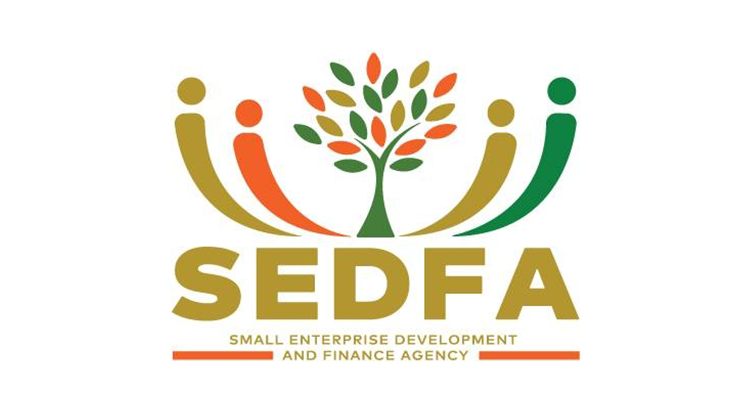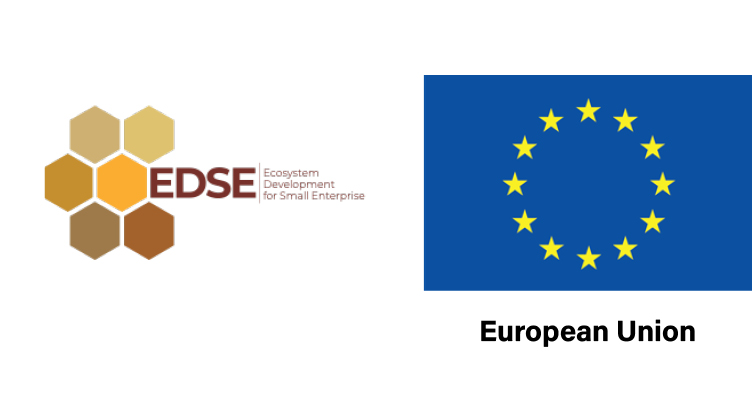Address by Hon. Khumbudzo Ntshavheni to the Annual Archbishop Thabo Makgoba Development Trust Lecture Series: How Leadership Conceives Recovery Support to the SMME Sector during and post the pandemic
10 May 2021
Programme Director: Prof Richardson Shambare – Chair of School of Business
and Finance Archbishop Thabo Makgoba of the Angelican Church and Chancellor of the
University of the Western Cape
Prof Vivien Lawack, DVC Academic and Acting Rector of UWC
Prof Michelle Esue, Dean Economic and Management Sciences
Prof Shaun Pathar
Good afternoon
I have noted that one of the pillars for the Archibishop Thabo Makgoba Development Trust is Food Security. Interestingly, in my acting capacity and in support of the Deputy President of the Republic, we are coordinating the finalisation of the Social Security Plan for the country – which really emanated from the Food and Nutrition Plan. Even in the consolidation of this Plan, the President insisted on the inclusion of the Entrepreneurship pillar if social security is going to be sustainable.
You have asked pertinent questions, through the topics that you requested me to address this afternoon.
HOW LEADERSHIP CONCEIVES RECOVERY SUPPORT TO THE SMME SECTOR DURING AND POST THE PANDEMIC?
I have chosen this as underpinning all the other questions that you have requested me to cover. I
have interpreted this question to mean, what is the thought process informing our plan for Economic Reconstruction and Recovery that was tabled in the Joint Sitting of Parliament by His Excellency President, Cyril in October 2020, of course the focus will be on the SMME/ small business sector. I guess it is in the nature of lectures that on their own, they are more than just a speech, as they are used to convey critical information, contextual background. For me lectures are for imparting knowledge and understanding and whereas speeches can be used for rhetoric. I am therefore humbled by your invitation to participate in this Lecture, and I am here to also gain immense insight from other speakers and panelists.
“The heart of the prudent acquires knowledge, the ear of the wise seeks knowledge” Proverbs 18: 5
For us in Cabinet, the basic thinking about on the Economic Reconstruction and Recovery Plan was drawn from the 21st April 2020, address to the Nation by President Ramaphosa, when he said “we are resolved not merely to return our economy to where it was before the coronavirus, but to forge a new economy in a new global reality. Our economic strategy going forward will require a new social compact among all players…to restructure the economy and achieve inclusive growth”. He further said, “we will accelerate the structural reforms required to reduce the cost of doing business, to promote localisation and industrialisation, to overhaul state-owned enterprises and to strengthen the informal sector. We will forge a compact for radical economic transformation that advances the economic position of women, youth and persons with disabilities, and that makes our cities, towns, villages and rural areas vibrant centres of economic activity”.
Is there a need to reconfigure policies and/or introduce new policies in favour of enhancing support to small and micro enterprises?
I am going to give a long winded response to this question – I am going to do what is at times called political speak.
For me, as a first time Cabinet member, I see the pandemic with all its devastation as offering a great opportunity for our country to re-organise our economic situation better, quicker and sustainably. Earlier I quoted the President committing government in accelerating the structural reforms required to, amongst others, strengthen the informal sector. We had started the work of strengthening the informal sector in 2019, in this work we shared the views that were succinctly summarised by Makalya Barker in her Political Science Honors Projects for Macalester College, in May 2020 titled Colonial Legacies and Institutional Legitimacy: Explaining Variation in State-Level Informal Economy Size. This view is that informality often disproportionately impacts members of society who are already politically, socially, or economically marginalised. In South Africa, like in the rest of Sub-Saharan Africa, women comprise the majority of the informal economy.
What is worst in South Africa is that some industry have remain in the fringes of the economy (unaccounted for in economic statistical data) irrespective of the size of such industries such as the spazashops in the retail sector, the taxi industry and the hair and beauty businesses. The regulation of the informal sector in the height of the lockdown, proved very onerous and without the standardisation of processes across municipalities, the Minister had to publish Directives to ensure consistency of access to business activity under the Disaster Management Act.
However, majority of us are fully aware that the treatment of informal businesses in South Africa differs from one municipality to the other and some of the municipal by-laws relating to business activity are a serious red tape to the growth of informal and micro businesses. So in 2020, we requested the President to transfer the administration of the Businesses Act, 71 of 1991 from the DTIC to the Department of Small Business Development. This piece of legislation regulates how business permits are administered at a local level. We are far advanced in drafting amendments to the Businesses Act as part of those structural reforms I referred to early. Whilst passed through by Parliament that amendments will provide necessary support to women and youth entrepreneurs in both the informal and micro businesses.
So what did government do for the informal sector during the pandemic?
Government’s major contribution to the informal sector was its decision to allow spazashops, fruit and vegetable vendors and the langanas – the fish traders – to operate even under lockdown level 5. This ability to continue to trade albeit under very strict conditions enabled households to provide a meal for their families – we are not discounting that businesses were not very profitable. Most importantly, this opened up a discussion about the participation and contribution of the informal sector into the mainstream of the economy, government has started to considered the eastern Europe model on informal and micro businesses.
It is estimated that there are between 150, 000 to 200, 000 spazashops with an estimated annual turnover of R20 billion per annum. Their continued informalization is the continuation of minimizing the contribution of women and black people in the economy of South Africa. In addition, their continued informalization makes them vulnerable to harassment and lack of statutory business protection. Despite their turnover, these businesses could not access to credit which is critical for any financial viability of businesses. The government has initiated a programme to support 100, 000 spazashops over a 5-year period to formalize and provide them with access to credit and general financial support in partnership with both development funding agencies and commercial banks. In addition, these spazashops are provided access to enterprise development support which includes statutory compliance support, business and financial management support and related services. The financial year ending 31 March 2021, will see over 10,000 spazashops supported directly by government and an additional 10, 000 supported through the SME Fund which is a partnership between government and the private sector.
Ladies and gentlemen
The President also committed government to accelerate the structural reforms required to promote localisation and industrialisation. During the pandemic, Cabinet approved the SMME Focused Localisation Policy Framework – which is part of the ERRP and identified
1,000 products that must be produced and procured from SMMEs. During the State of the Nation Address 2021, the President further committed government to creating a larger market for small businesses. Of the 1000 products, at least 250 must be procured by the State, however without a policy intervention, the current Supply Chain Management Act will inhibit the implementation of this bold and empowering effort for majority of our SMMEs. It is for this reason, the President has instructed through the SONA and the ERRP, that National Treasury must fast-track the submission of the Procurement Bill to Parliament.
Through this SMME-focused Localisation Framework, the Department of Small Business Development and its agencies coordinates and direct the buy local campaign together with large corporates and communities. To date, the Department has established working relationships with large retailers and wholesalers across the country to list and purchase the products manufactured by
SMMEs. More than 200 products produced by SMMEs and cooperatives have been linked to markets through these relations and simultaneously, the Department is creating independent markets in townships and towns for SMMEs and cooperatives to trade their products.
To support manufacturing as part of the localization programme, the Department designed and is implementing in partnership with its agencies (SEDA and SEFA) and the DTIC, a focused manufacturing programme that is aimed at building and supporting SMME participation in the manufacturing value chain. The Department envisages to use the localisation policy framework as a tool that transforms the face of manufacturing in the country, to promote locally produced products, encourage local procurement and the upscaling of SMMEs.
What are the interventions to support female entrepreneurs, who very often are sole breadwinners providing for the basic needs of their families and communities; and what opportunities are there for them to start, sustain and grow their businesses?
SheTradesZA
Part of our responsibility is to facilitate the creation of a network for women owned enterprises, which we call SheTradesZA – named after the International Trade Centre’s SheTrades programme. The SheTradesZA programme targets to support at least 250, 000 women-owned enterprises to access local, regional and global value chains by 2030. Through the SheTradesZA programme the Department aims to connect at least 10 000 women owned enterprises to market by 2025. In the
financial year ended, 31st March 2021 (which is our first year of implementation), our target was to support at least 2, 000 women-owned enterprises to access markets and to also trade with each other. As of end of March 2021, 1 333 women entrepreneurs have been registered on the SheTradesZA platform. The response by women entrepreneurs has been very slow to register because of the challenges caused by the pandemic where the focus was mostly on survival rather than expansion. The Department will also ensure that more women-owned enterprises are export ready so that they can take advantage of international markets as the economies start opening.
SheTradesZA is a platform that serves as a unique opportunity for women entrepreneurs to participate in the global value chains and markets. The platform targets supporting women-owned businesses in the agro-processing, manufacturing, renewable energy, clothing and textile, cosmetics, creative industries, pharmaceuticals, retail and wholesale, exporters and importers, logistics and payment systems. Women-owned businesses in these sectors will be assisted to have their products ready for markets and be linked with the market.
Our emphasis on regional value chains is because we believe that coming into effect of the African Continental Free Trade Area as of 1st January 2021 is an opportunity that women-owned enterprises in Africa should not play catch-up with but become active participants from its onset.
Furthermore, South Africa’s programme for women empowerment seeks also to address the legacy of our colonial past and patriarchy that informalized women’s economic activities thus undermining the sustainable development. For example, general day-to-day trade in foodstuff and other basic necessities that is predominately women dominated was reduced to informal business commonly known as spazashops without any attempts to formalize them.
This work to support spazashops was fast-tracked with our Covid-19 Relief Initiatives during the period of hard lockdown, when the Department of Small Business Development ensured that spazashops are allowed to trade. We knew the exclusion of informal businesses including fruit and vegetable vendors was largely going to affect the livelihoods of women-headed households and women entrepreneurs in general. Government did not only support their continued trading but provided financial support to spazashops but providing access to credit and funds to buy initial stock.
What are the kinds of ICT-related initiatives that have been introduced/developed to support small and micro enterprises? SMME DIRECTORY (SmmeSA: https://smmesa.gov.za)
The pandemic enables us to bring forward the implementation of an online Directory of SMMEs and cooperatives, commonly known as the SmmeSA. This Directory is important because as government we are starting to consolidate data on SMMEs that are active in the country per economic sectors and sub-sectors, locality, annual turnover, age and gender of ownership and persons with disability.
We are confident that through this Directory, government will be able to accurately know the number of SMMEs in the country both at formal and informal sector level.
It is interesting that both government and academy use estimates without accurate data about the number of SMMEs in this country. This information is important for government planning, quantification of economic contribution – if credible data is kept, StatsSA could use – but it will make SMMEs more accessible by large corporates and government for procurement purposes. As a In this era of a digital economy, the Department is also using SmmeSA to enable Tech-businesses to offer their platform-as-a-service (PAAS) or application-as-a-service (AAAS) overlaid on this Directory. Our firm belief is that entrepreneurs are more agile and responsive when it relates to technology.
Department and its agencies implemented the https://smmesa.gov.za platform in March of 2020 as a measure for SMMEs in distress to register and apply for benefits during the pandemic. The system currently permits SMMEs to register and apply for initiatives provided by the Portfolio with integrated feedback mechanisms and dashboards for applicants to monitor the progress of their applications. Since its inception, the database had registered more than 218000 unique SMMEs. The system is based on integration to key government agencies and departments to ensure that data validation is achieved at the start of the process, improving the turnaround for the validation and completion of the process. Further enhancements are in progress to incorporate a universal dashboard to provide information to relevant stakeholders. A sub-joined process is being developed to enable an SMME rating system that considers business viability and linking the applicant directly with financial and non-financial opportunities, inclusive of Business Advisory services.
INCUBATION AND DIGITAL HUBS
For the transition to the digital economy also requires a system that supports entrepreneurship and innovation. The success of this system is dependent on the pace at which government is able to expand dedicated support to start-ups and new entrants in the tech businesses which are the next frontiers of business. The overall goal is to help innovative local tech start-ups overcome constraints such as lack of strong early support structures, accelerators, and access to early stage funding. In 2020/21 approximately 100 local tech start-ups were supported.
To massify this support, the Department is rolling incubation centres and digital hubs, with a target of 250 incubation centres across the country by 2030. Our view is that the Department does not have to set up new infrastructure but utilise both government infrastructure and infrastructure in institutions of higher learning. We have already established a number of these incubation centres in TVET colleges and have started with some universities – it will be mutually beneficial to partner with the University of the Western Cape on your incubation programme.
The incubators/ hubs render support to young start-ups and innovators providing needed infrastructure, industry collaboration, enterprise supplier development linkages, access to funding and investor linkages, build strong firm level teams with high touch mentoring and coaching aimed at building strong leadership, disruptive business models and scalable businesses poised for rapid growth. The hubs offer a full-service continuum and follow structured incubation and acceleration model.
Our firm belief on entrepreneurship is that as much as it is innate, it is also taught and that institutions of higher learning provide a platform to catch and nurture the buddy entrepreneurs early on in their business development stages. My question to the University is whether you are teaching a generation of job creators for economic emancipation in this life time or you are continuing to produce generations of job seekers. Our view is that your education on entrepreneurship is must also integrate technology or your ICT programmes must also be embedded on entrepreneurship. I raise these because I have observed that some of the wealthiest entrepreneurs are university graduates and therefore institutions of higher learning must challenge themselves to produce the next generation of wealthy people.
I look forward to the partnership between the University of the Western Cape and the Department of Small Business Development.
I thank you!




